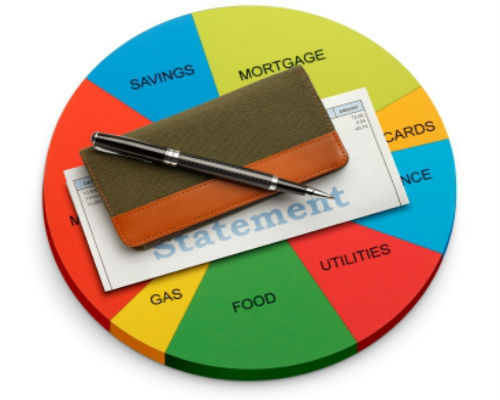
Nowadays, earning more is not the only aspect in the equation of building wealth. As expenses have increased, managing spending patterns has become an even important part of the wealth building exercise. It is often seen that many households are unable to control their expenses on a particular head irrespective of trying hard. A solution to this is to follow the Envelope Budgeting System.
Envelope Budgeting System is an age old system of efficiently managing expenses, such that you do not over shoot expenses under any head. That is, various expense heads are labelled and categorized differently and you keep aside money for each of these heads separately in different envelopes. This is the literal way of maintaining an Envelope Budget, which has been followed for centuries by people across the world. Although the mode of maintaining an Envelope Budget may have changed along the years, the essential problem addressed is the same – to segregate expenses and not to spend money on different things from a single pool of money.
Let’s understand this with an illustration. Suppose you have a monthly expenses budget of Rs. 30,000 on various heads as follows: Rent: Rs.15,000, Grocery: Rs.3,000, Utility Bills: Rs. 4,000, Salaries of maid and cook: Rs.2,500, Eating out: Rs.3,000 and Miscellaneous expenses: Rs. 2,500. Now if you were not following the Envelope Budgeting, you would have all this as a bulk amount and spend as and when the expenses arise. On the other hand, if you follow the Envelope Budgeting, you must set aside money towards each of these expenses in separate envelopes. So in effect, you will be maintaining 6 envelopes in the beginning of the month, with different amounts as specified above. As and when you need to spend on a category, you can take the cash from the respective envelope and spend. This way, you will be forced to maintain you expense levels within the limit of money you put in the respective envelope. If you happen to be making a cheque or credit card payment for any expense head, then earmark this also. But as far as possible, it is better to stick to cash payments for such regular expenses to help you maintain discipline.
So, what is the key to the success of the Envelope Budget system? Is it something which everyone can follow easily? The Envelope Budgeting System sounds far easier than what it actually is. Discipline is the key to the success of this practice, which will help you control your expenses. Here are a few important points to remember when you follow the Envelope Budgeting system, such that you control your expenses:
Do not transfer money between the envelopes: As tempting as it may sound, having some excess money left in one envelope does not mean you use it up in another category where you are falling short. This system aims to control your expenses in individual categories. By transferring money between the envelopes, you are effectively defeating the purpose of the system. Hence remember that any extra money left in the envelope goes towards your investments as a bonus and should not be used up in other categories.
Money spent once cannot be refilled: When you spend money from an envelope, it is gone. There is no question of refilling the envelope before the month ends. You must learn to manage your expenses with the money that is already remaining in the envelope, and thus there is a need to spend this wisely. Any temptation of putting more money into the envelope and spending more than what you had initially budgeted for, renders the whole practice meaningless.
Emergency expenses need to be compensated immediately: Sometimes, if there is an emergency, you may resort to spending using your credit or debit card. It is ok to do so, provided you are able to immediately adjust for such expenses in your budget.
Penalize yourself for breaking the rules: If you happen to fall out of the system and spend more money than you initially allocated towards any expense head, then you must penalize yourself to avoid the mistake again. For instance, if you had allocated Rs.3000 towards eating out, but end up spending Rs.4,000 towards this during the month, then you have spent Rs.1000 more. Invest double or treble the amount overspent towards an investment or reduce this amount in your next month’s envelope.
Many people start this system enthusiastically, but do not follow it beyond a few months into it. Inculcate the discipline needed to control your expenses, and you can see the difference it makes on your finances.